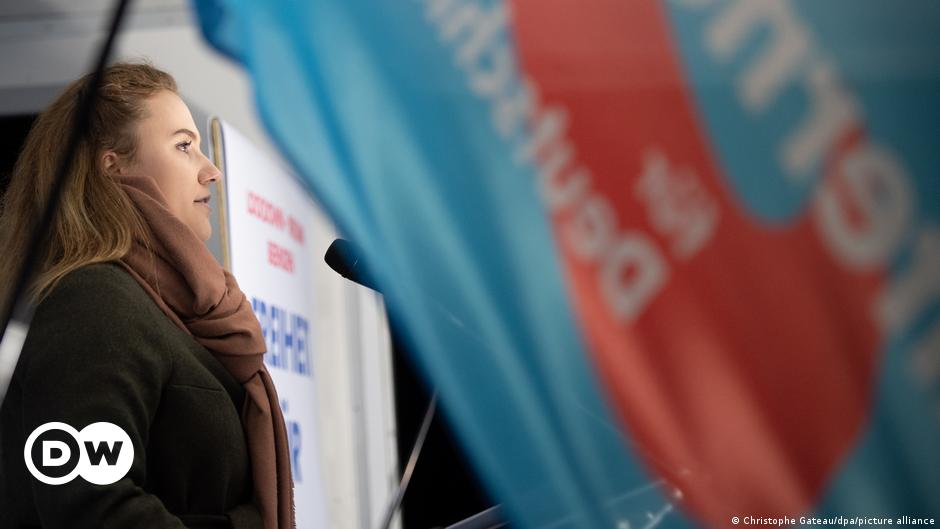German teenagers and young adults find themselves increasingly unsatisfied and likely to vote for the far right, according to a survey. Fears about prosperity are highlighted as a possible cause.
Young people are more likely to vote for the far-right Alternative for Germany (AfD) than previously, a study on Tuesday showed.
Authors of the “Youth in Germany 2024” study said that under-30s were increasingly disgruntled with their social and economic situation, and that fears about future prosperity were driving a shift to the right.
The AfD’s signature issue is a hard-line anti-immigration stance, and the data showed that migration was among young people’s main concerns.
…
The online study, conducted in January and February, found that young people were becoming increasingly dissatisfied, especially with their social and economic situation, compared with previous years.
After the effects of the COVID-19 pandemic, the authors said economic and political worries for example due to inflation, high rents, the wars in Ukraine and the Middle East or the division of society had taken center stage.



It’s not like the left cares, either.
The ruling class knows the proles will just squabble over bullshit while the disparity in wealth continues to grow.
Notice how Americans didn’t elect Bernie? They don’t care about solving these problems. That would mean reducing the disparity in wealth, and we can’t have that.
They care More. Don’t both-sides on social programmes.
I know this may come as a shock to you, but funneling taxpayer money to private businesses does not reduce the disparity in wealth.
For example: assistive housing does not pay a lower price for its clients. Medical welfare is the same way (at least in the US.)